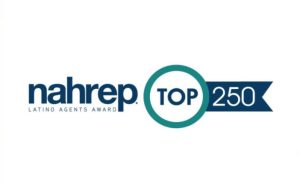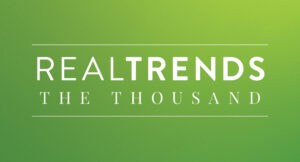Maintaining an environment of diversity and inclusion helps real estate agents achieve the highest level of success. Integrity and the ability to serve the community at large make stellar agents stand out from the competition. Discover how a diverse and inclusive group of agents best suits the neighborhood’s needs and builds relationships based on trust.
What Is Diversity, Equity, and Inclusion?
Understanding the terminology is the first step to adopting it in the office and with clients:
- Diversity refers to the ways people are different.
- Equity means fair treatment, opportunity, and access for everyone.
- Inclusion means the sense of belonging and value people feel in a specific setting.
An agency should have diverse team members who all feel comfortable and have the same opportunities to succeed. This type of team serves the community with understanding and fairness – a perfect way to encourage positive word-of-mouth.
Keep the Fair Housing Act in Mind
Diversity, equity, and inclusion align with Fair Housing and the Code of Ethics for real estate professionals. Thus, real estate professionals must treat every client and employee fairly and equally, regardless of race, sex, religion, color, sexual orientation, handicap, gender identity, or national origin. Being mindful of diversity and inclusion is essential to provide the best service to clients. In addition, ethical brokers and agents work together to build strong communities and relationships – the cornerstones to continued success in real estate.
Market and Sell Homes Fairly
Real estate agents must market and sell homes ethically, keeping in mind unfair or discriminatory practices. A diverse group of agents better serves every community member, helping to break down barriers associated with owning a home. Bringing in agents of all backgrounds encourages more clients to consider the possibility of homeownership. As a result, equity is created in the local housing market, enabling more people to buy and sell homes – which means more work for trusted agents.
Cultural Competence Matters
A discussion of cultural competence encourages understanding at every level. The term cultural competence refers to the ability to understand and interact effectively with other cultures. Multicultural competence requires an understanding of one’s own culture, the desire to learn about different cultures, and a positive perspective toward cultural differences and readiness to accept them. Ongoing training, including podcasts and webinars, helps agents stay focused on their level of cultural competency to ensure fairness at all times. Better Homes and Gardens Real Estate affiliated agents have access to continued training always to do their best.
Start at the Top
Leadership drives change, and role models are crucial to achieving diversity and inclusion. With that in mind, compassionate leaders with a vision help employees feel heard and valued, enabling them to vocalize ideas to facilitate change. Everyone in the team must be committed to diversity and inclusion initiatives, with opportunities to reflect on what is working – and what isn’t. Uncovering pain points is the first step toward eliminating any types of bias and discrimination.
Continuing to Learn and Grow
Continued training, education, and discussion are crucial to maintaining diversity and inclusion in real estate. Remaining actively engaged with the established plan requires knowledge, skill, and learning at every level. Agents take these abilities into the field to work with clients in every area of the community. Plus, this opens doors to creating new opportunities, such as offering FHA/VA housing loan information to bring in more diverse clients. Real estate agents with a finger on the local pulse have a chance to strengthen the community and build a reputation that encourages referrals.
Diversity and Inclusion – The Bottom Line
Diversity and inclusion bring measurable organizational benefits. For example, companies with inclusive cultures are more likely to meet or exceed their financial goals. Plus, diversity encourages innovation, high performance, and the best possible business outcomes. Other benefits of a diverse and inclusive workforce include improved talent attraction and retention and a respected business reputation.
Real estate agents who understand the importance of the Fair Housing Act and diversity and inclusion enjoy the benefits of being part of a diverse team. Ongoing education and keeping abreast of community developments and diversities are crucial to future success. A powerful team changes the community for the better and builds a business that makes everyone feel proud.








